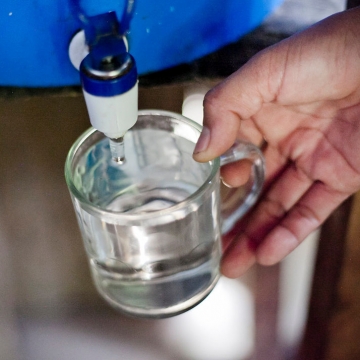This paper analyses the underlying factors affecting people’s satisfaction with drinking water provided by community-based organizations in rural Costa Rica. These organizations provide water to more than 60% of the country’s rural population, but there is great disparity in the quality of water provided.
Using a Generalized Ordered Logit regression and data from 41 villages, we studied how characteristics of the water supply infrastructure, the governance structure, and the attributes of local people affect consumers’ perception of water quality at home.


